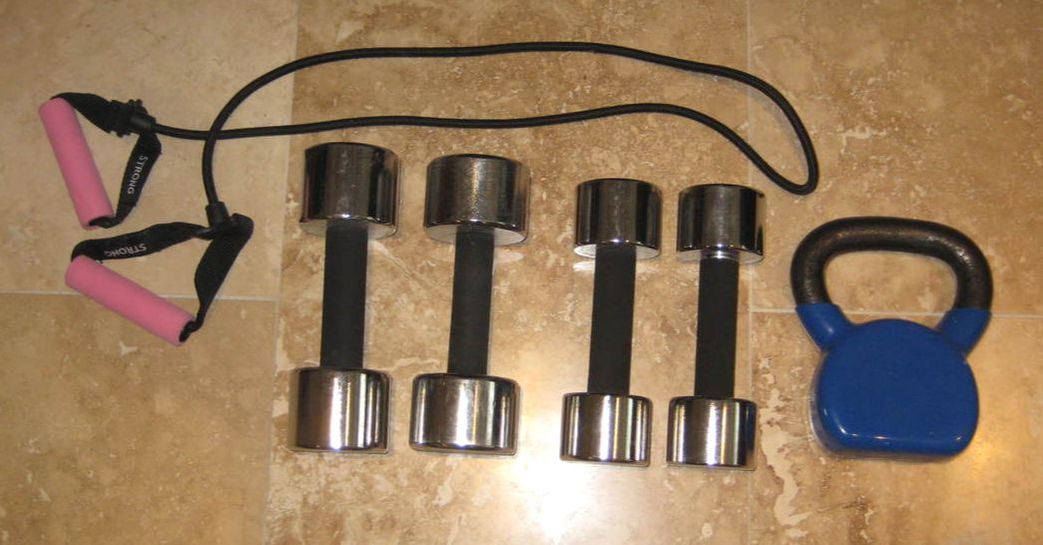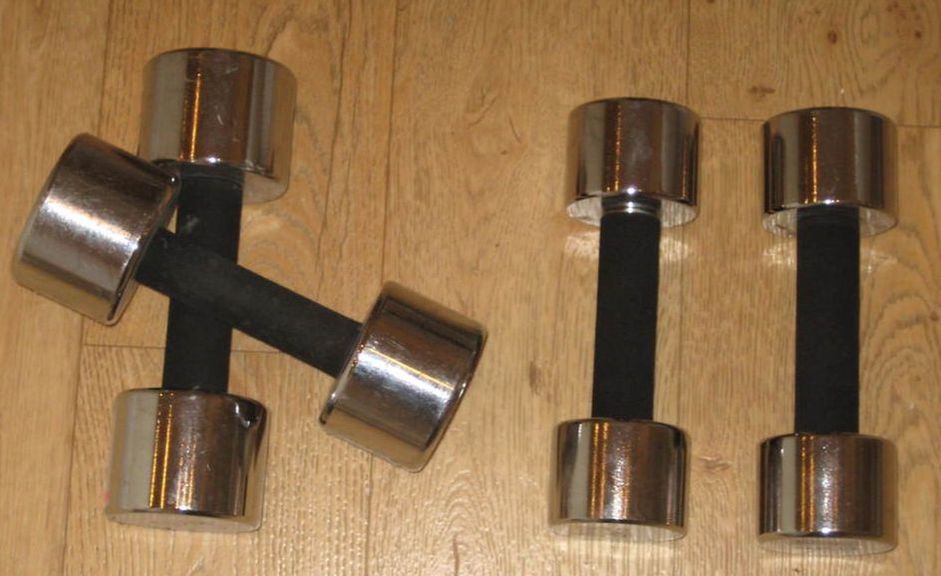WHat do we already know about resistance training and MS?
The idea for this post came from a study published at the beginning of August in the Multiple Sclerosis Journal exploring whether resistance exercise can show improvements in MRI and other clinical markers of MS disease progression. The article was quickly picked up and reported by the popular press- albeit with a rather sensationalist and misleading headline - screaming:
‘Resistance training SLOWS the progression of multiple sclerosis and even REVERSES brain shrinkage, study shows for the first time’.
Not quite so accurate once you read the full study (reference below) but it got me thinking about how resistance exercise can be beneficial in the management of MS.
What do we mean by resistance exercise?
Resistance exercise (or strength/weight training) improves the strength of the muscle and its ability to resist force.
Whilst this sounds frighteningly 'personal trainer-y' it can be as straightforward as lifting and carrying a bag of shopping (although that's not always as easy as it sounds).
‘Resistance training SLOWS the progression of multiple sclerosis and even REVERSES brain shrinkage, study shows for the first time’.
Not quite so accurate once you read the full study (reference below) but it got me thinking about how resistance exercise can be beneficial in the management of MS.
What do we mean by resistance exercise?
Resistance exercise (or strength/weight training) improves the strength of the muscle and its ability to resist force.
Whilst this sounds frighteningly 'personal trainer-y' it can be as straightforward as lifting and carrying a bag of shopping (although that's not always as easy as it sounds).
Why might resistance training help with my MS?
The premise behind study into the role of resistance training to help in MS is based on research indicating that PwMS often show loss of muscle mass over time (muscle atrophy). This muscle atrophy is the result of decreased activity (eg walking and standing etc) and is not restricted to PwMS; muscle atrophy happens to anyone who is not active - or as active as they have been previously - for a period of time. This loss of muscle mass further results in loss of muscular strength making functional tasks such as walking and standing, lifting and carrying even more difficult.
In MS there is uncertainty around the origins of atrophy-based impairment; is it as a result of the disease activity per se (ie demyelination and axonal degradation in the central nervous system) and/or the consequence of reduced physical activity levels, in itself driven by effects of the disease? It’s a vicious cycle.
A recent systematic review [consensus of results from a number of studies] revealed that despite the suggestion of muscular weakness as a result of disease activity it is evident that MS does not impede the ability of muscles to increase in strength through training, thereby potentially improving ability to complete strength-related functional tasks (eg lifting and carrying). It is worth emphasising that any improvements in strength are task-specific to the individual muscles trained.
It is crucial here that you consult a physiotherapist or qualified personal trainer to pinpoint any specific weaknesses so that they can develop a bespoke programme for you; I can't reiterate enough the need to consult a professional on this, exercise can definitely do more harm than good if performed incorrectly.
Specific ways in which resistance training can help in MS
Since it was established in the last few decades that exercise is beneficial to PwMS (contrary to early advice to avoid exercise altogether for fear of worsening symptoms of fatigue) many studies have attempted to quantify the optimal type and amount of exercise for PwMS.
Much of this research has been focussed on resistance training to address the evidence discussed above around muscle atrophy and associated weaknesses; after earlier studies established that aerobic exercise (eg running and cycling) can raise body temperature to levels which may exacerbate symptoms (Uhthoff's phenomenon). More recent studies have shown that resistance exercise may be better tolerated by PwMS due to the shorter bursts of activity/effort required, and frequent rest periods naturally programmed between sets
Resistance exercise has been shown to improve:
- Specific muscular strength (at all levels of disability)
- functional capacity
- mood
- mobility
- balance
- fatigue
Some ideas for resistance exercise...
Resistance exercise can come from many different sources including:body weight exercises (eg yoga and pilates poses, sit-ups, press ups or squats)
That said, if you enjoy swimming and aren't affected by the temperature of the water, the classes which have foam 'noodles'/ 'water woggles'/ or whatever look great fun and seem to be enjoyed by people of all ages. Maybe take a friend and give it a try!
What is the recommended amount of resistance activity?
The guidelines for resistance training for PwMS do not seem to differ from that of the population as a whole. My website shows the general population guidelines for physical activity which includes two sessions per week for adults aged 18-65+.
As with any activity you should only do what feels achievable and can be completed safely. Your ability is yours alone so only you know what is best for you.
Some notes on safety; it is paramount that you keep yourself safe while exercising. Always use a 'spotter' when lifting weights, you never know when you may not be able to complete a planned exercise, so they are there to step in and help. The same advice goes for anyone lifting weights, it is not exclusive to PwMS so always workout with a buddy when using weights; the weights really do hurt if you drop them.
See my page on tips for exercising with MS on the website; both from me and the MS trust.
And the final words from me...
Have a look at my website to understand more about how exercise can help us manage some of our specific MS symptoms.
Do let me know if you have enjoyed this post and found it useful. Send me an email (address below); send me a tweet (@healthylifems) or send me a message through the contact page on the website, I'd love to know what you think.
Resistance exercise can come from many different sources including:body weight exercises (eg yoga and pilates poses, sit-ups, press ups or squats)
- Exercises using dumbbells, a barbell, kettlebell or resistance bands (Before I invested in some weights for home I used filled water bottles as dumbbells!)
- Free weights (gym and with a spotter for safety)
- Water-based resistance in the swimming pool (usually as a class with floating resistance-devices)
That said, if you enjoy swimming and aren't affected by the temperature of the water, the classes which have foam 'noodles'/ 'water woggles'/ or whatever look great fun and seem to be enjoyed by people of all ages. Maybe take a friend and give it a try!
What is the recommended amount of resistance activity?
The guidelines for resistance training for PwMS do not seem to differ from that of the population as a whole. My website shows the general population guidelines for physical activity which includes two sessions per week for adults aged 18-65+.
As with any activity you should only do what feels achievable and can be completed safely. Your ability is yours alone so only you know what is best for you.
Some notes on safety; it is paramount that you keep yourself safe while exercising. Always use a 'spotter' when lifting weights, you never know when you may not be able to complete a planned exercise, so they are there to step in and help. The same advice goes for anyone lifting weights, it is not exclusive to PwMS so always workout with a buddy when using weights; the weights really do hurt if you drop them.
See my page on tips for exercising with MS on the website; both from me and the MS trust.
And the final words from me...
Have a look at my website to understand more about how exercise can help us manage some of our specific MS symptoms.
Do let me know if you have enjoyed this post and found it useful. Send me an email (address below); send me a tweet (@healthylifems) or send me a message through the contact page on the website, I'd love to know what you think.
Commentary from the MS Society on the study reporting on reversal of brain atrophy
Incidentally, the response from Dr David Schley, Research Communications Manager from the MS Society regarding the headline study about resistance training and brain atrophy, reports:
'This small study confirms that exercise can improve muscle strength and mobility in people with MS - results we’ve already seen in other studies.
While it didn’t show any significant changes in things like brain volume or the amount of MS lesions, we know that everyone with MS can benefit from being active.
MS is unpredictable and exercise can help manage challenging symptoms.'
Incidentally, the response from Dr David Schley, Research Communications Manager from the MS Society regarding the headline study about resistance training and brain atrophy, reports:
'This small study confirms that exercise can improve muscle strength and mobility in people with MS - results we’ve already seen in other studies.
While it didn’t show any significant changes in things like brain volume or the amount of MS lesions, we know that everyone with MS can benefit from being active.
MS is unpredictable and exercise can help manage challenging symptoms.'
References:
Daily Mail (article) Available at: http://www.dailymail.co.uk/health/article-4754068/Resistance-training-slows-progression-MS.html#ixzz4r3z33szH
Dalgas U., et al (2010) ‘Fatigue, mood and quality of life improves in multiple sclerosis patients after physical resistance training’ Multiple Sclerosis Journal, April 16(4):480-90; doi: 10.1177/1352458509360040. Epub 2010 Mar 1
Filipi, M.L. et al. (2011) ‘Improvement in strength following resistance training in multiple sclerosis patients despite varied disability levels’. Neurorehabilitation, 28(4): 273-82. DOI: 10.3233/NRE-2011-0666
Kjolhede, T., Vissing, K., Dalgas, U. (2012) ‘Multiple sclerosis and progressive resistance training: a systematic review’. Multiple Sclerosis Journal, 0(0) 1-14; doi: 10.1177/1352458512437418
Kjolhede, T., et al (2017) ‘Can resistance training impact MRI outcomes in relapsing-remitting multiple sclerosis?’ Multiple Sclerosis Journal, August, 1-10; doi: 10.1177/1352458517722645
Mosby’s Medical Dictionary, 19th ed. Elsevier: Missouri
Piatta, M.E., et al. (2016) ‘Effect of exercise training in multiple sclerosis: a meta-analysis’. Arch Phys Med Rehabil, 2016 Sep; 97(9) 1564-1572. DOI: 10.1016/japmr2016.01.023.Epub 2016. Feb 2016.
Daily Mail (article) Available at: http://www.dailymail.co.uk/health/article-4754068/Resistance-training-slows-progression-MS.html#ixzz4r3z33szH
Dalgas U., et al (2010) ‘Fatigue, mood and quality of life improves in multiple sclerosis patients after physical resistance training’ Multiple Sclerosis Journal, April 16(4):480-90; doi: 10.1177/1352458509360040. Epub 2010 Mar 1
Filipi, M.L. et al. (2011) ‘Improvement in strength following resistance training in multiple sclerosis patients despite varied disability levels’. Neurorehabilitation, 28(4): 273-82. DOI: 10.3233/NRE-2011-0666
Kjolhede, T., Vissing, K., Dalgas, U. (2012) ‘Multiple sclerosis and progressive resistance training: a systematic review’. Multiple Sclerosis Journal, 0(0) 1-14; doi: 10.1177/1352458512437418
Kjolhede, T., et al (2017) ‘Can resistance training impact MRI outcomes in relapsing-remitting multiple sclerosis?’ Multiple Sclerosis Journal, August, 1-10; doi: 10.1177/1352458517722645
Mosby’s Medical Dictionary, 19th ed. Elsevier: Missouri
Piatta, M.E., et al. (2016) ‘Effect of exercise training in multiple sclerosis: a meta-analysis’. Arch Phys Med Rehabil, 2016 Sep; 97(9) 1564-1572. DOI: 10.1016/japmr2016.01.023.Epub 2016. Feb 2016.




